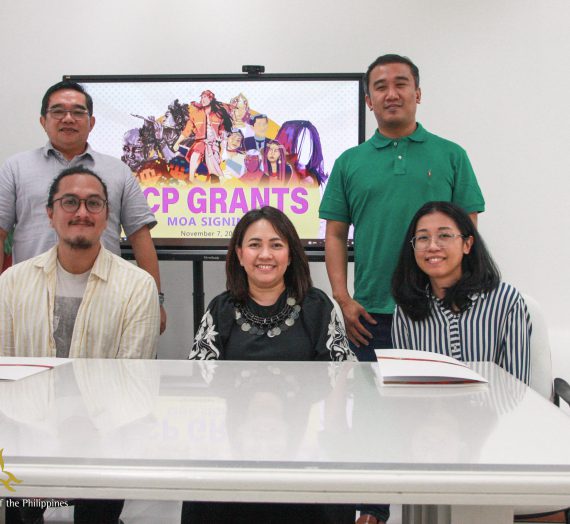QUEZON CITY – Over twenty-five researchers—faculty, graduate, and undergraduate students—from De La Salle University-School of Economics presented their latest and diverse scholarly work on challenges and opportunities for growth and development, and the central role that innovation plays in the fourth industrial revolution at the 57th Philippine Economics Society Annual Meeting and Conference last November 7, 2019.
“There is no doubt that the Philippines will undergo a technology-induced structural change. Understanding complex reactions brought about by the interaction between technological change and developmental outcomes would certainly require drastic strategies, lifelong learning initiatives, and policy foresight. After all, it’s only after we have harnessed our intellectual strengths, used our reservoir of knowledge, and maintained our propensity to test empirical limits that we can truly address complex developmental issues,” said Dr. Lawrence Dacuycuy, Full Professor of Economics, former School of Economics (SOE) dean, and president of the Philippine Economics Society as he declared the day-long knowledge exchange among economists, researchers, industry and public sector top executives open.
The School of Economics (SOE) led and organized four sessions anchored on the Conference’s central theme of “Rethinking Development Strategies: Integrating technology, promoting competitiveness, reinvigorating industries.”
A plenary session entitled “The Fourth Industrial Revolution: Issues in Research and Methodologies” featured paper presentations from Dr. Tereso Tullao, Jr., Adjunct Professor of Economics, and Dr. Raymond Tan, Vice Chancellor for Research and Innovation. Dr. Tullao presented his findings on the structure and competitiveness of research in the Philippines, and the challenges economists face in the fourth industrial revolution while Dr. Tan provided new approaches in research on the circular economy with the use of emerging methodologies from engineering.
A session on innovative approaches in measuring poverty and poverty impact assessment in which four empirical and methodology papers were also organized by SOE. Research results show latest findings on the link between the Pantawid Pamilyang Pilipino Program (4Ps)—a conditional cash transfer initiative by the government—and adolescent pregnancy, the effects of digital platform adoption among farmers, the drivers of chronic and transient poverty in the Municipality of Orion, Bataan using the Community-Based Monitoring System (CBMS), and the use of small area estimates of poverty incidence which revealed some discrepancies from official poverty incidence estimates released by the government.
Both undergraduate and graduate students participated in a third session headlined by SOE exploring issues and possibilities in the economics of innovation. In this panel, researchers examined the impact of free tuition in state universities and colleges in the production of knowledge capital which is essential in the innovation process, the use of complexity and simulation in addressing traffic congestion, the application of design thinking methods in developing initiatives that provide access to sustainable healthcare solutions, the changing role of education in human capital development in the fourth industrial revolution, and intellectual property considerations for innovations developed through open innovation.
Rounding up the sessions that showcased the research talent of SOE is the panel entitled “The Fourth Industrial Revolution in Finance and Insurance: Issues and Challenges.” In this panel, research assessed the riskiness of Bitcoin as an exotic investment instrument using different variants of the general autoregressive conditional heteroscedasticity (GARCH) model, explored the effects of conditional accounting conservatism on investment inefficiency among Philippine publicly listed firms, analyzed cyber liability in an offender-defender evolutionary game which further explored the role that government plays in protecting firms from cybercriminals, and the use of Leontief models for estimating disaster risk through a web application that can aid in assessing the economic impact of natural disasters on industries.
Other select studies from SOE were also featured in other parallel sessions. Papers include a study exploring the link between remittances and inflation as seen in the evidence from the Philippine, a survey of the impact of fiscal policy on the Philippine labor market, a study that evaluates the effect of subsidies on competition in the Philippine agriculture and manufacturing sectors, and a theoretical exploration on the role of network externalities in human capital models for the fourth industrial revolution. Poster presentations on the impact of macroeconomic outcomes on Philippine public debt, the welfare implications of the Bangko Sentral ng Pilipinas (BSP)’s an alternative strategy in monetary policy, and on how emotions affect risk attitudes using an audial experiment were also made by SOE researchers.
The participation of SOE in this year’s economics confab highlighted the inclusive research culture of the institution as shown by its vibrant array of research lines around pressing development issues and crucial opportunities in innovation and sustainability amid unprecedented changes brought about by the fourth industrial revolution.
Justin Eloriaga, a recent Summa Cum Laude graduate of the ladderized Bachelor of Science in Applied Economics-Master of Science in Economics (Honors) program, was also inducted into the Young Economists Honor Society in recognition for his academic achievements and early contribution to scholarship in economics.
“We are very proud of the breadth and depth of our research output showcased at the PES Conference this year. They represent our collective commitment to deliver unparalleled scholarship in economics to help solve real-world problems and contribute to the Sustainability Development Goals (SDGs), financial and economic inclusion, sustainability, and to use innovative methods as a way to address evolving policy questions in the fourth industrial revolution,” remarked Dr. Marites Tiongco, dean of the School of Economics, on the prominence of DLSU researchers in the annual economics conference.
For more information about the DLSU School of Economics, please visit https://www.dlsu.edu.ph/colleges/soe.


